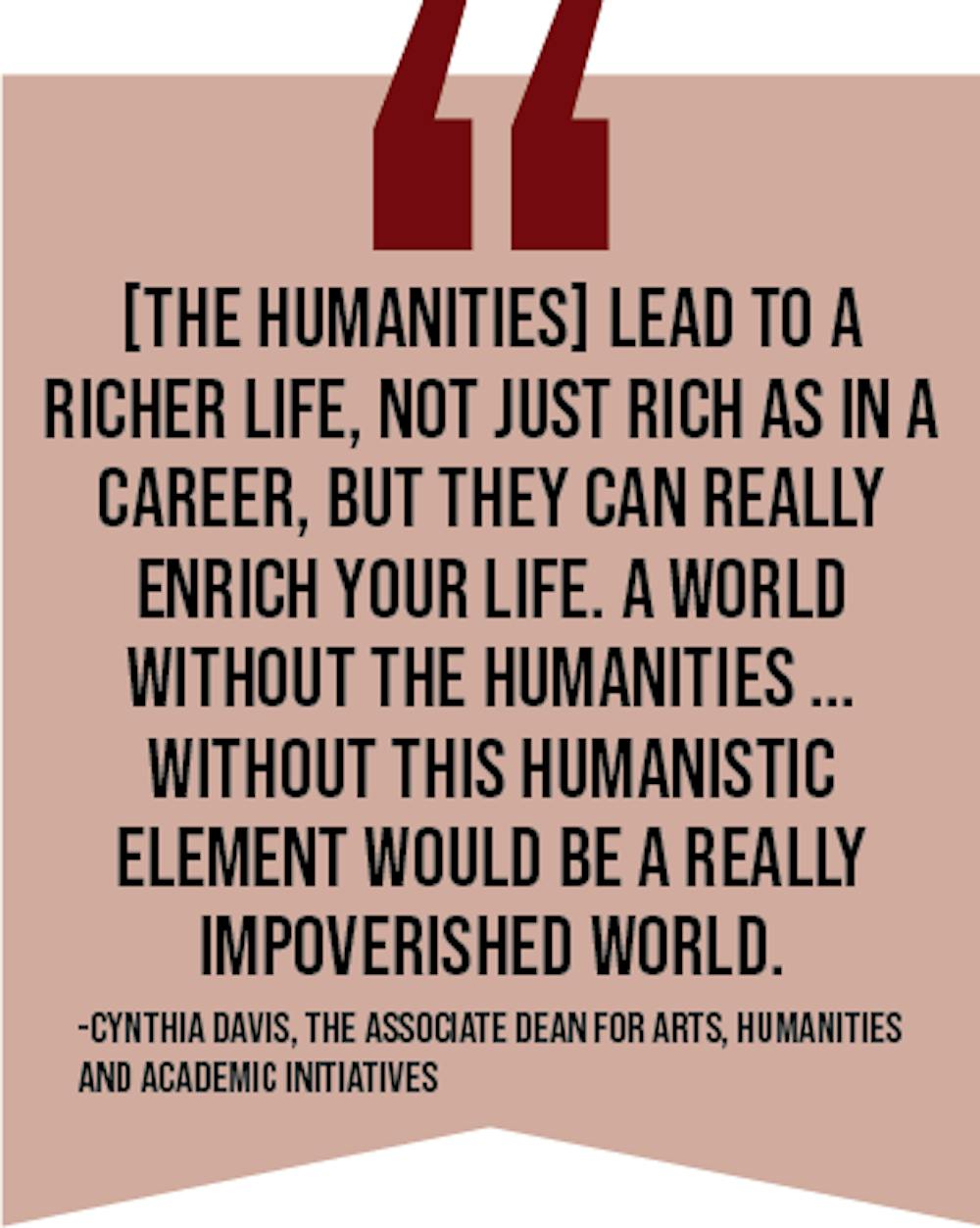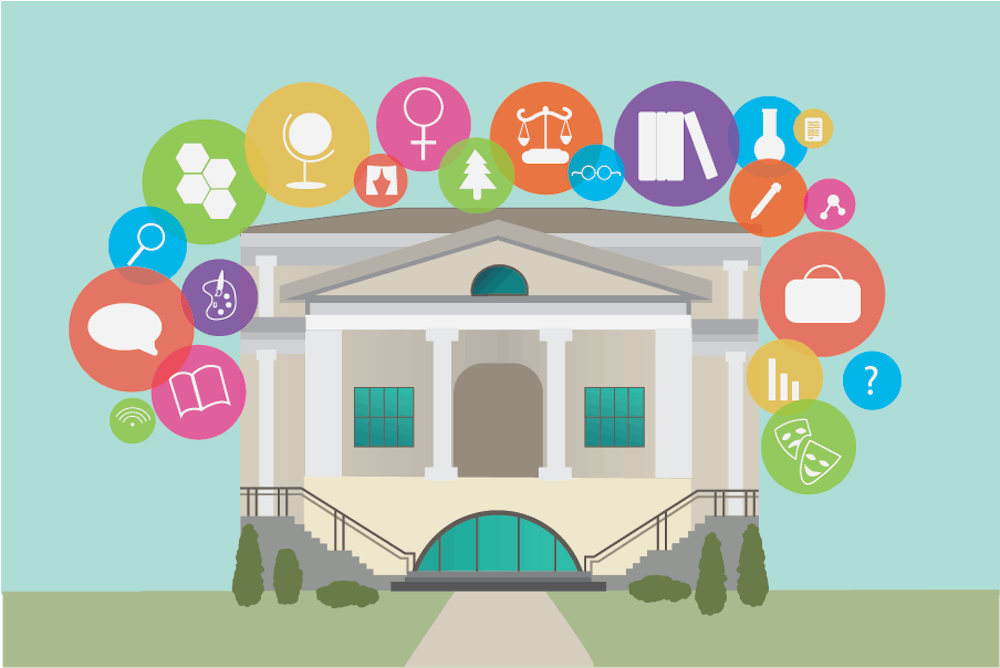After more than a decade of effort from interested faculty, a humanities collaborative is set to be introduced to the USC campus this fall. The initiative will promote and host discussions, workshops, reading groups, talks, grants and potentially more concerning issues surrounding the humanities.
Cynthia Davis, the associate dean for arts, humanities and academic initiatives, said the humanities are an important part of our society and that she hopes the collaborative will spread that message.

“[The humanities] lead to a richer life. Not just rich as in a career, but they can really enrich your life," Davis said. "A world without the humanities ... without this humanistic element, would be a really impoverished world."
Davis said she believes the humanities collaborative can help reset assumptions that majoring in a humanity-related discipline will not result in a distinctive or valuable career.
"I do think people are questioning more and more, you see this in the paper at least, that they don't really understand the value of a degree in, say, history or English," Davis said. "A humanities collaborative being launched at this time can help make that case to people and prove they can have life-long values."
First-year political science student Zoe Baskerville said she thinks people still don't see the importance or the possible career options in the humanities.
“I feel like, definitely, when someone is like, 'Oh, I'm an engineering major,' they are like, 'Oh, that's so awesome,' but I'm like, 'Oh, I'm a poli-sci major or a history major,' they’re like, 'Oh, what are you going to do with that?'" Baskerville said.
Baskerville said she hopes the collaborative can be an opportunity to bring together students of all majors in the humanities and the College of Arts and Sciences.
“I feel like within the College of Arts and Sciences and the humanities, there’s not a big sense of community and interaction," Baskerville said. "In my experience, there just aren't as many chances to be able to connect and collaborate with other students in the school and humanities, especially those in other majors, which I feel is really important."
The collaborative would be housed in readily available space provided by the College of Arts and Sciences, according to Davis.
Holly Crocker, a professor of English language and literature in the College of Arts and Sciences, is in charge of setting the agenda and vision for the center. Crocker said the humanities collaborative will focus on communities larger than the university itself.
"We will be forming partnerships with people inside the community, and we will be sponsoring and amplifying how to work with what's going on, both in Columbia and in the state more broadly, that has relevance to the humanities," Crocker said.
Davis said she was put in charge of connecting the humanities disciplines and that she and Lacy Ford, the former dean of the College of Arts and Sciences, had wanted a humanities collaborative on campus.
"[Ford] had me put together a group of faculty who work in the humanities to sort of try to sketch out, in broad outline, the potential mission statement for something like this," Davis said. "I gathered together all the humanities centers and institutes on our campus that are already in place ... so that the new leader of the collaborative could know about those and maybe spend some time talking to the kind of work that's already going on."
Baskerville said she thinks humanities students should get more recognition.
"The humanities really do and are helpful and apply to a lot of things, and they are important, and I think it is important to lift those kind of majors up and emphasize them more," Baskerville said.
Crocker said she, along with others working on the project, feel this collaborative has more importance than ever in today's climate.
"Our feeling is, especially right now, the humanities, and what it means to be human and those kinds of questions of how to put ourselves in touch with others in relation to categories of a human, is more important than ever, given the kind of violence; factionalism; just general stress on our society and the values that we profess," Crocker said.

